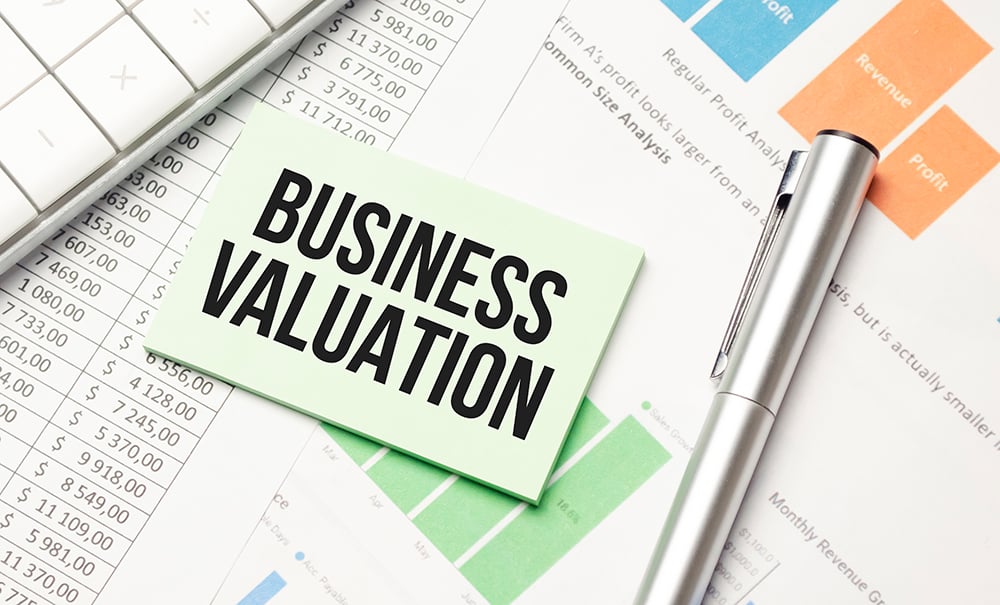To determine the appropriate valuation for a private company requires a judicious combination of precision, science and artistry. It is a process that is crucial, especially in the world of mergers and acquisitions (M&A). In contrast to their publicly traded counterparts however, private businesses while playing a major role in a variety of transactions, hide their financial intricacies in confidentiality. The lack of transparency that is the issue which requires a distinctive method to expose the real value of the private sector.

In the realm of M&A the accuracy of valuation is crucial. The majority of M&A deals involve private companies which is why understanding their value is crucial to understand the implications of transactions. Knowing the worth of private companies is crucial for litigation and tax purposes.
Value of Private Companies
The stock exchange is a wonderful opportunity to learn about the value of publicly traded firms. They are able to easily access the data they need, like how many shares are outstanding and what the current price is. This approach is not applicable to private companies since they do not release their financial data publically. Private company valuations pose challenges because the information needed for valuation is not available to the public. For more information, click Valuation of private company
Four ways that can be used to evaluate private companies
In spite of these difficulties there are four typical methods employed for valuing private businesses:
Comparable Companies (CCA) Analysis This technique analyzes the financial metrics of similar companies within the same industry to determine the worthiness of the business in question.
Precedent Transactions Analysis: PTA is the process of looking at sale prices of companies similar to the target company that have undergone M&A deals. This provides a benchmark valuation for the company.
Discounted Cash Flows (DCF): DCF is an instrument for calculating the intrinsic value based on future performance by estimating the value of future cash flow and then discounting it to its present value.
Direct Valuation of Assets: In this method it is determined by analyzing each asset of the company, which include real estate, intellectual properties as well as equipment.
The importance of valuations by private companies in M&A transactions
In M&A transactions, the valuation of a private firm is the key element. A clear valuation enables vendors and buyers to make educated decisions that meet their financial and strategic criteria. If it’s a purchase sale, or merger, understanding the true value of a private business is vital to the sustainability and success of the transaction.
M&A is a tangled process that involves negotiations, due-diligence as well as financial aspects. A fair and transparent transaction can be built upon the first step of valuing privately-owned companies. This allows both parties to begin negotiations with a clear view of the value of the business, which fosters confidence and allows for smoother transactions.
The significance of valuations for private companies extends beyond M&A. It is crucial for litigation, taxation and various other areas.
Taxation: Understanding the value of a company is vital to plan and ensure compliance. A thorough valuation can ensure that the business is taxed properly based on its actual value, and also avoid any conflicts in tax administration.
Litigation: Valuation is crucial in legal proceedings where the worth of a private company is a matter of contention. A precise valuation can be essential in determining a fair resolution, whether it is disagreement between shareholders, divorce proceedings, or bankruptcy proceedings.
Four Common Valuation Methodologies
Comparable Companies Analysis (CCA): CCA involves the analysis of public companies similar to private businesses with respect to size, industry, and financial metrics. Examining the valuation multiples of similar companies will provide an estimate of the worth of a private company.
Precedent Transactions Analysis (PTA): PTA is based on the selling prices of similar companies which have also gone through M&A transactions. By looking at the multiples of these transactions, analysts can determine a price for the private company of interest.
Discounted Cash Flows (DCF): DCF is an forward-looking strategy, which is based on estimating the future cash flows that the business is expected to generate. These cash flow are then discounted to their current value to give an intrinsic value, taking into account the time value.
Direct Valuation Assets: In this method, each asset that is owned by a business is assigned an amount. This applies to tangible assets such as real estate, equipment and patents as well intangible ones such as trademarks and patents.
In conclusion, valuing the value of a private business is essential and challenging in the realm of business transactions. This process involves a careful analysis of financial metrics, benchmarks for the industry and projections for the future. Value that private companies receive influences their present and future as well, from M&A transactions, taxation, and litigation and the implications of litigation.
A precise valuation is essential for business owners, investors as well as stakeholders to make informed decision-making. The landscape of private company valuation is constantly evolving, companies that understand its complexities and employ sound valuation methods are better positioned for success in a constantly changing market. The valuation of a private company isn’t just about calculating numbers, it’s about understanding the fundamentals of business.
